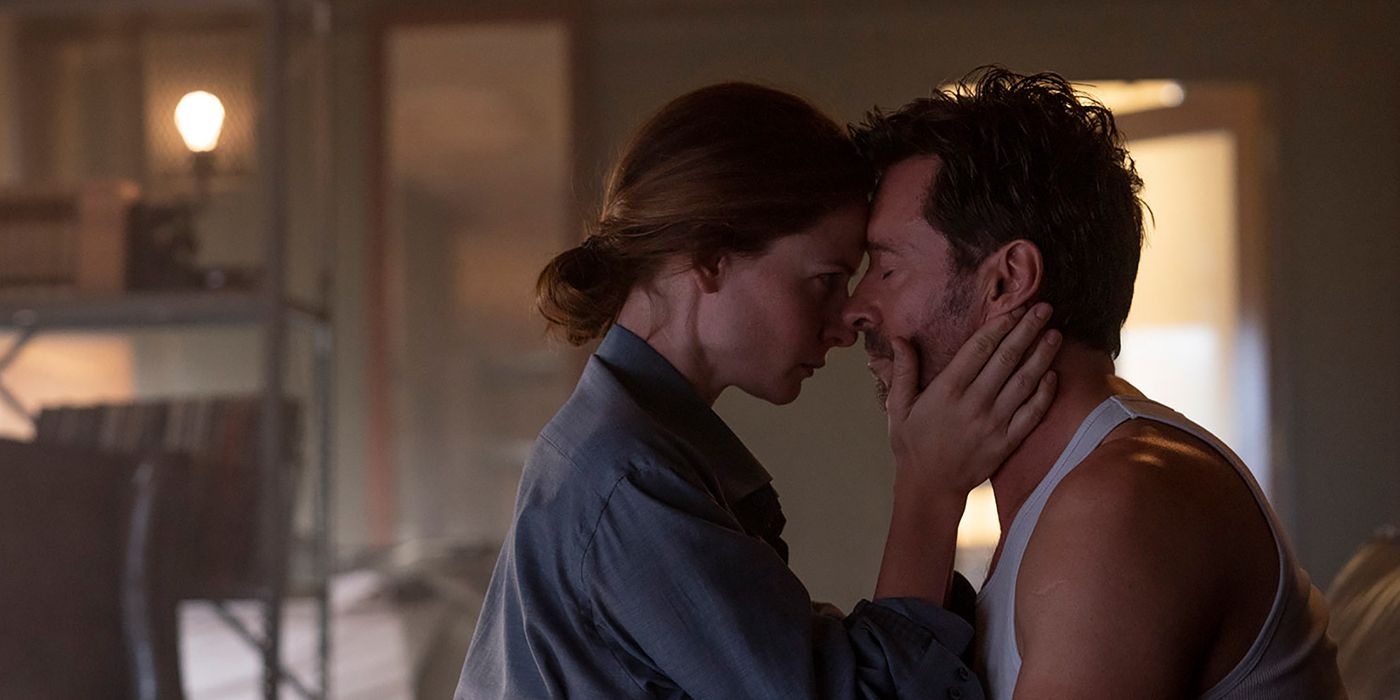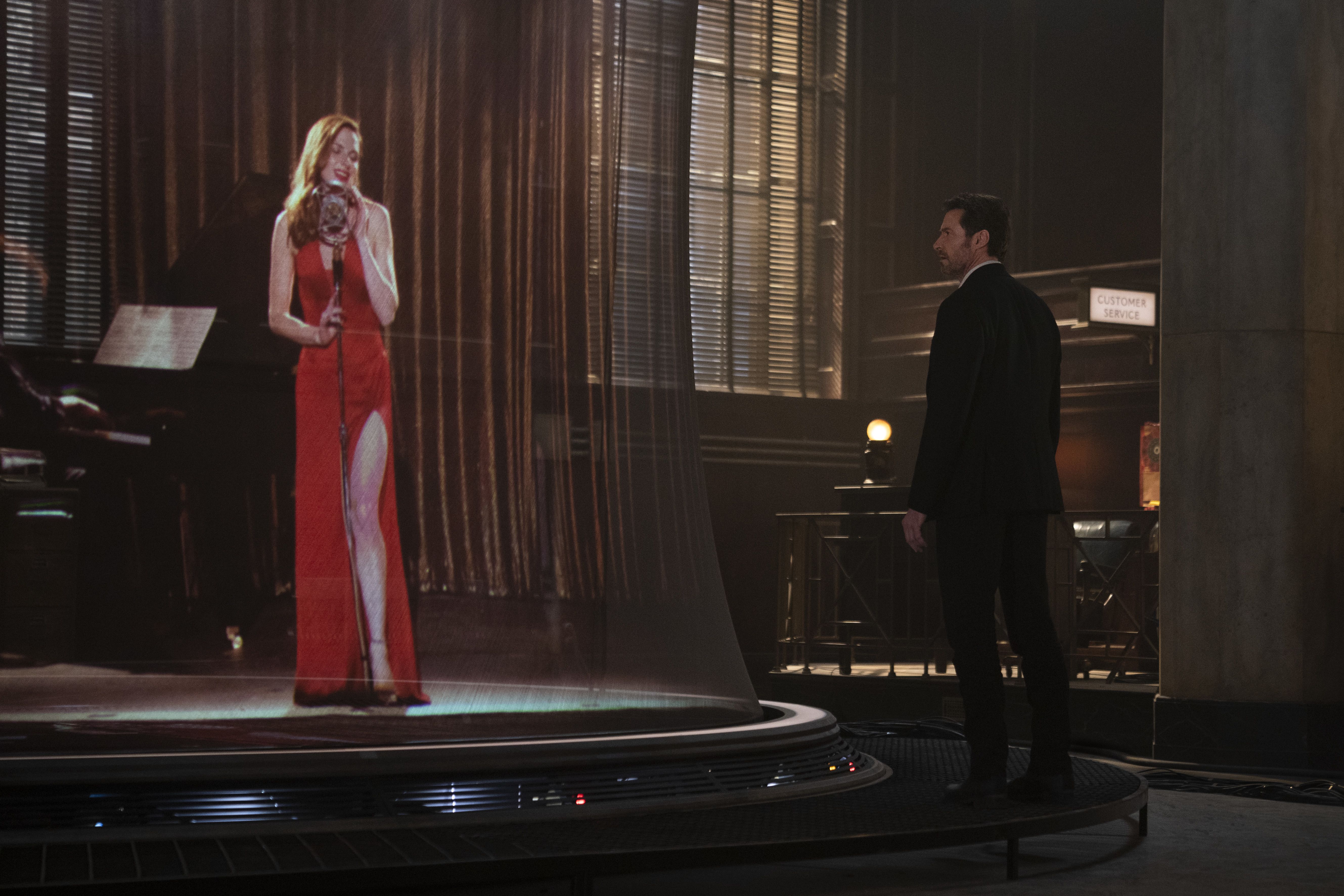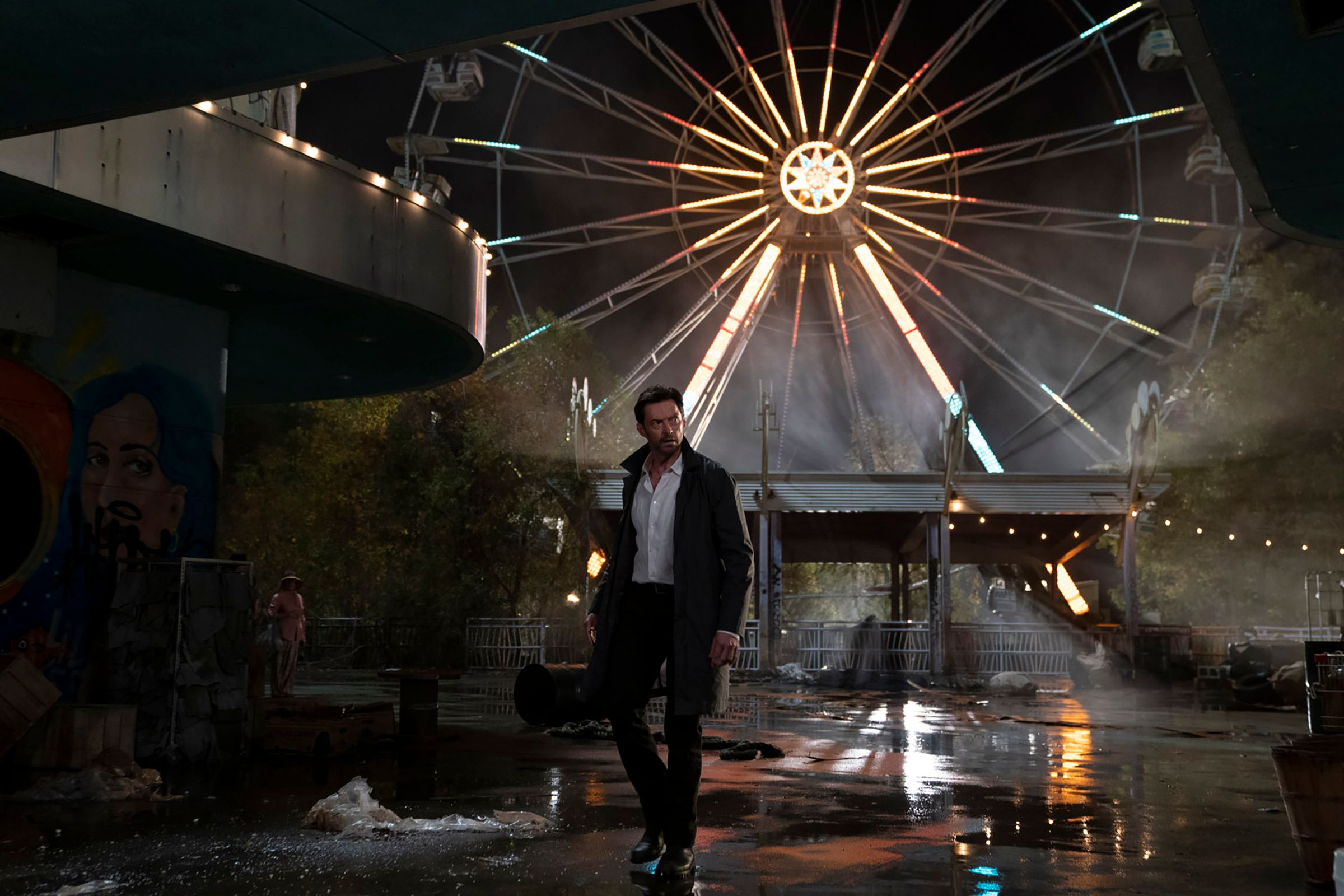As a lover of the noir genre, I’m always excited when someone wants to give it a spin, which has becoming increasingly rare as its elements of darkness and bitter endings (cloaked in the acquiescence to the Production Code) faded for more crowdpleasing offerings in mystery-thrillers. Writer-director Lisa Joy has attempted to give the noir a futuristic twist with her new film Reminiscence, but like her TV series Westworld, it’s an awkward mashup of ideas about class conflict mixed with notions of how memory interacts with identity. Despite some stunning production design and lush cinematography, Joy frequently uses the noir trappings to simply talk down to her audience while coming up with a saccharine story that seeks out a bittersweet ending only to accidentally land in mawkish uplift. Reminiscence offers a feeling that will be familiar to viewers of Westworld: disappointment.
The future has been ravaged by climate change and war. In a partially-sunken Miami, former sailor Nick Bannister (Hugh Jackman) now works with his former comrade-in-arms Watts (Thandiwe Newton) in the field of Reminiscence. In a crummy future, nostalgia is presented as the most inviting escape, so people hop into a tank, put some electrodes on their head, and sink into a memory they can reexperience through a special machine that displays and records the reminiscence. When a mysterious woman, Mae (Rebecca Ferguson), enters his practice claiming to need help remembering where she put her keys, Nick is enchanted. The two begin a whirlwind affair that abruptly ends when Mae disappears. Nick becomes consumed with finding her, and another case involving a wealthy land baron allows him to keep tracking her down only to discover that the woman he remembers wasn’t who she claimed to be.
The first half of Reminiscence is fairly promising. Jackman makes for a good weather-beaten detective, someone who has clearly been jaded a bit but still has a kind heart beneath a rugged exterior, and Reminiscence consciously takes him away from his action-movie bona fides by having him get his ass kicked a lot. You’ve also got Newton providing the heart of the film as Watts harbors romantic feelings for Nick, but has chosen to bury herself in a bottle (although oddly she never seems to get drunk or have it impair her work in anyway; it’s an odd character detail devoid of much consequence). Throw in Ferguson as the apparent femme fatale, and you’ve got an enchanting mix set against an alluring backdrop of Miami’s art-deco lights meshed with sunken streets and corruption on every corner.
But once you dig past the promising surface, you can see that Joy is out of her depth. Noir needs a darkness (it’s in the name!) that Joy is not only uncomfortable embracing, but instead decides to wholeheartedly reject. Perhaps that’s a consequence of the PG-13 rating and the VFX budget required to make this sci-fi landscape, but Reminiscence could never be a Chinatown where the class commentary gives way to tragic consequences. Instead what you get is Nick narrating class observations about how the rich making things harder for everyone else and the poor suffer, which, yeah, no shit. For example, the film crafts a rich visual metaphor about how the wealthy have built a dammed, elevated city that the waters can’t reach, but that dam pushed water into the poorer parts of Miami, thus not only keeping the rich safe, but also making life harder for everyone else. But in case you didn’t get it, Nick is here to tell you exactly what it means because Joy doesn’t trust her audience enough to simply absorb the statement made by the setting.
What’s more frustrating is that the class commentary is merely window dressing. It kind of positions Mae’s story as a consequence of class conflict, but it doesn’t have much to do with Nick. It’s simply the world he inhabits, and while he doesn’t need to be a class warrior or anything like that, his perceptions of the world exist separate from his personal journey to find Mae. He doesn’t see the world one way and have that perception changed through his relationship with Mae, so it’s just Joy embracing her own cleverness by showing a sci-fi world that emphasizes class conflict. However, she doesn’t do the work to connect that world to her protagonist’s story, so it all feels hollow. Reminiscence is texture without purpose. That makes it a beguiling experience to start, but as the story unwinds, it all starts to seem silly because the artifice stands apart from a compelling narrative.
When that narrative eventually does reach its climax, you’re left wondering why Joy even bothered to upend the noir genre into such a crowd-pleasing direction when the Hollywood landscape certainly doesn’t lack for crowd-pleasers. I won’t spoil the resolution of the mystery, but I will say that it’s deeply unsatisfying and shows the shallowness of the concept Joy has constructed here because for all of Nick’s monologues about memory, the film does nothing to really recontextualize or dissect nostalgia other than saying that some people dwell in the past and others resolve to move towards the future. It’s such a shrug of a conclusion that it feels like Joy has surgically removed everything remotely interesting about her concept and left us with a gilded shell of landscapes and tropes. When your biggest takeaway from a film is “why we look for happy endings,” you’ve come up with something facile, obvious, and totally forgettable.
Rating: C-
Reminiscence will be in theaters and on HBO Max on August 20th.



